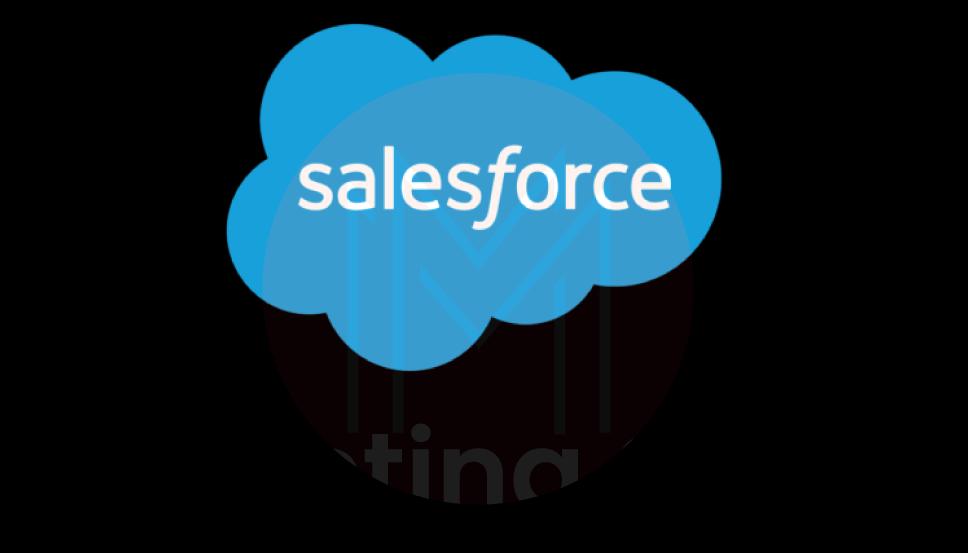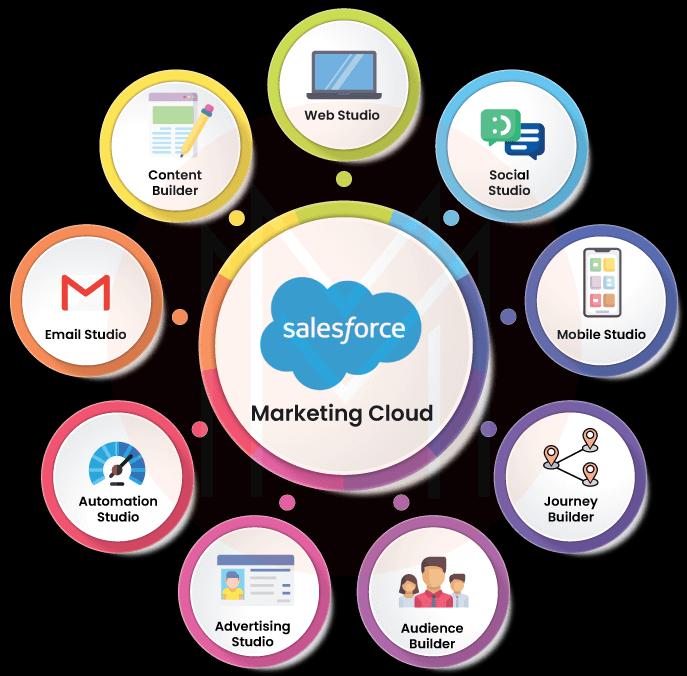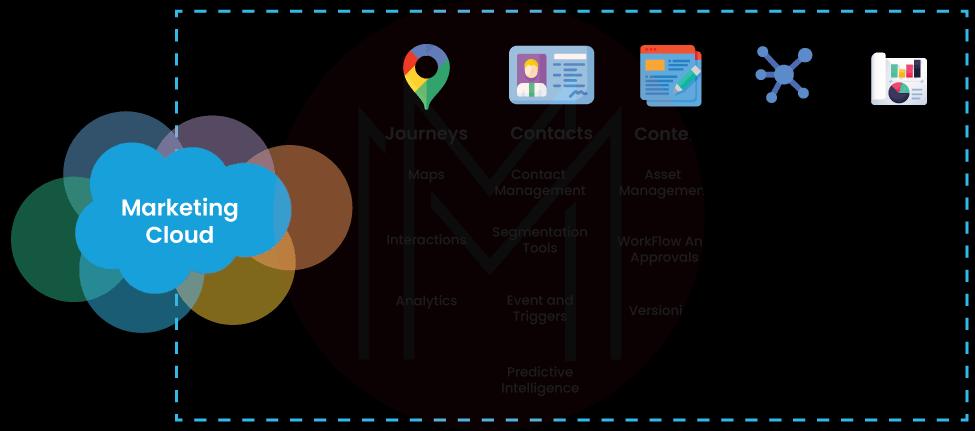- Home
- Blog
- Salesforce
- What is Salesforce Marketing Cloud - Definitive Guide

- Apex Class in Salesforce
- Approval Process In Salesforce
- Step By Step Guide to Becoming a Certified Salesforce Developer
- Bulkification in Salesforce
- Code Coverage In Salesforce
- Context Variables In Salesforce
- Controller Extension in Salesforce
- Controlling the program flow in Salesforce
- How To Create Data Modeling In Salesforce?
- Custom Controller in Salesforce
- Custom Reports In Salesforce
- DML Operations In Salesforce
- Top 10 Features of Salesforce Lightning
- Governor Limits in Salesforce
- How Salesforce Certification Can Boost Your Career?
- Salesforce Lookup Relationship
- Master-detail Relationship in Salesforce
- User Management And Object Level Security In Salesforce
- Price Book in Salesforce CPQ
- Product Bundle in Salesforce CPQ
- Quote Line Editor In Salesforce CPQ
- Why Learn Salesforce?
- Record Level Security In Salesforce
- Report Building in Salesforce
- Salesforce Automation Testing With Selenium
- Salesforce Collection of Map
- Salesforce Collection of Set
- Salesforce CPQ Implementation Guide
- Salesforce CPQ Tutorial
- How to create dashboard in Salesforce
- Salesforce Developer Certification, Jobs And Salary Trends
- An Overview of Salesforce Development Environment
- Salesforce Interview Questions
- Salesforce Lightning Interview Questions
- Salesforce Lightning Tutorial
- Salesforce Enhances Its Marketing Cloud With AI And Google Partnership
- Salesforce Job Roles And Certifications
- Salesforce Tutorial
- Salesforce vs ServiceNow
- Salesforce Vs Siebel CRM'S
- Access Specifiers in SalesForce Cloud Computing - Salesforce
- An Introduction to Exception Handling – SalesForce
- An Introduction to Visualforce – SalesForce
- An Overview of Salesforce Security
- Annotation in SalesForce
- Classes, Inheritance and Overriding in SalesForce
- Configuring Salesforce Web-To-Lead Form
- Creating Visualforce Page using AJAX Programming - Salesforce
- How to Create Field Dependence in SalesForce
- How to Create Sample Apex Trigger in SalesForce
- How to Define Validation Rules in SalesForce
- Object Relationships Overview – SalesForce
- SalesForce Integration and Environment in Cloud Computing
- SalesForce Deployment and Assertions
- Shallow copy and Deep Copy in Cloud Computing - Salesforce
- Security and Audit Trail in Salesforce
- Salesforce SOQL
- SOSL Of Salesforce
- Standard Controller In Salesforce
- Test Class in Salesforce With Example
- Testing APEX In Salesforce
- Time Dependent Workflow Rule - Action
- Trigger Scenarios in Salesforce
- What is CRM? - A Complete Beginners Tutorial
- What is Salesforce Administrator?
- What is Salesforce CRM?
- Why You Should Learn Salesforce Skills
- Workflow Rules In Salesforce
- Configuring Tasks in Workflow Rules
- How to call APEX Class
- Context Variables
- Configuring Email alert in Workflow Rules
- Salesforce Web Services
- Salesforce Vlocity Interview Questions
- Salesforce CPQ Interview Questions
- Visualforce Interview Questions
- Salesforce Tools
- Salesforce Integration Interview Questions
- Custom Settings in Salesforce
- What is Salesforce Database?
- Salesforce Data Loader
- Salesforce Platform Events
- Bucket Field In Salesforce - Bucket Column Salesforce
- What is Junction Object In Salesforce?
- Sharing Rules in Salesforce
- What is Salesforce Architecture?
- Salesforce Projects and Use Cases
- Salesforce Marketing Cloud Integration
- Microsoft Dynamics VS Salesforce
- Salesforce Admin Projects and Use Cases
Salesforce Marketing Cloud (SFMC) is a powerful CRM platform that can help marketers create and manage campaigns, customer relationships, and marketing strategies.
SFMC is a valuable tool for businesses of all sizes. It allows you to target your customers and measure the effectiveness of your marketing campaigns. Salesforce Marketing Cloud is used by businesses to consolidate all marketing channels into a single platform. So, marketers can send targeted messages via the appropriate channel and at the appropriate time.
Things to know about Salesforce Marketing cloud:
- Salesforce did not create the core of SFMC; they bought it in 2013 as part of their acquisition of ExactTarget.
- Salesforce Marketing Cloud (previously ExactTarget) is a Salesforce solution that does not use the primary Salesforce platform to sync data between your core Salesforce org and your SFMC account.
Read on to discover more about the benefits of Salesforce Marketing Cloud and how it can help your business succeed!
What is Salesforce Marketing Cloud?
Salesforce Marketing Cloud is a marketing platform that can support various marketing activities, such as multi-channel campaigns, dynamic customer journeys, and pre-campaign. Post-campaign analytics, audience building, segmentation, social media engagement, and advertisement are some of the areas influenced by Salesforce. This platform offers a variety of opportunities focused on the marketing industry, with the overarching goal of putting the client at the center of every interaction.
| Do you want to enhance your skills in dealing with the world's best Cloud Computing Courses, enroll in our: “Salesforce Online Training” Course. |
Benefits of salesforce marketing cloud
1.Integration Capabilities: With its robust integration capabilities, Salesforce Marketing Cloud can offer data from various sources (another factor in why the data management features are so valuable).
A number of APIs are there in SFMC, along with REST API and a SOAP API, and an anticipated connectivity to Salesforce's Sales Cloud and Service Cloud (through Marketing Cloud Connect).
Enhancing our current contact information in SFMC, importing content, and starting triggered sends are typical use cases for these APIs.
2.Third-Party Applications: A wide variety of third-party applications, including those from the Salesforce AppExchange, are available for Salesforce Marketing Cloud to expand its functionality and adapt it to our unique company objectives. Assume the SFMC AppExchange to be analogous to the Apple App Store or Google Play Store (and other Salesforce Clouds).
SFMC can be enhanced in terms of functionality and value by a wide range of additional third-party solutions from Salesforce partners outside the AppExchange.
3.Managing Data: Data extensions (a table) that may be linked to create a relational database supported by SQL are used in Marketing Cloud to collect data.
This gives SFMC an advantage over specific rival systems that provide a limited data model constrained by the data they can import and handle. It also helps that SFMC can store different types of data and let us construct our own unique data model.
This is significant because it enables more intricate audience segmentation and building within SFMC (Salesforce Marketing Cloud).
4.Application in Artificial Intelligence: Within SFMC, Salesforce's artificial intelligence technology, dubbed "Einstein," offers some intriguing uses, such as:
To forecast who will interact with messaging, use engagement scoring, sent time optimization determines the most effective time to send a message to each recipient, increasing the likelihood that it will be opened. Understanding the engagement rate will help us decide how many notes to send to each person.
What Market Does the Salesforce Marketing Cloud Target?
Many business sizes and sectors take the help of Salesforce Marketing Cloud. Although Marketing Cloud is frequently considered an enterprise-level platform, the many editions make it adaptable for businesses of all sizes.
Although Salesforce Marketing Cloud was primarily created as a B2C platform, B2B businesses utilize it. In the same way, the consumers, especially those who make the decision, would like to have experiences of those offered to B2C clients, usage of SFMC in B2B is increasing. Although SFMC is not the most affordable product in its category, it is an extensible platform that can grow with our business and is not a resource that will become obsolete for our firm. This is a crucial factor to take into account for every tool in our technology stack.
| Related Article: Salesforce Tutorial |
Applications Of Salesforce Marketing Cloud
A platform for automation of marketing, called Salesforce Marketing Cloud, is used for:
- Email promotion.
- Management and development of content (emails, landing page templates, forms, images, coupons).
- Sending and tracking SMS.
- Push notifications for mobile devices, including in-app notifications.
- Social media marketing: plan our content, keep an eye on it, and benefit from extensive data and real-time engagement.
- Campaign automation can be visualized by grouping various channels into a single view.
- Discover lookalike audiences that behave like our present high-value consumers with targeted web advertising.
- Utilizing website "listening" to adapt webpages to the interests of visitors.
- Strong segmentation with potential access to many attributes from our CRM and other sources.
- Activities related to data management/ETL include file import, file transfer, data extraction, SQL query, filtering, and scripting. Automate multi-step workflows by using these steps.
| Looking for Best Salesforce Marketing Cloud Training Platfrom in Hyderabad? To Enroll a Free Demo Click Here. |
Components Of Marketing Cloud
The critical components of the Salesforce Marketing Cloud are:
- Journey Builder: The Marketing Cloud's visual mapping tool is called Journey Builder. At every point of the life cycle, create individualized, multi-branched consumer experiences through several channels.
- Email Studio: By sending the appropriate message at the proper moment through email campaigns, email studios assist marketers in fostering more robust customer relationships.
- Data Studio: We can collaborate with other marketers and publishers using this data-sharing tool to gain specific customer insights and boost sales. Marketing campaigns that resonate with customers are easier to develop the more we know about them.
- Advertising Studio: With the aid of the advertising studio, which helps manage the acquisition, retargeting, and alignment campaigns, take a step toward digital advertising. To develop tailored advertising that aligns with our marketing plan, use our CRM and marketing data.
- Social Studio: This tool aids in the development of personalized social media campaigns that aim to convert followers into potential clients. We can improve our social media marketing by monitoring, evaluating, and interacting with our social media audience.
- Mobile Studio: Utilize group chatting, push alerts, and customized SMS to communicate with customers while on the go. Mobile marketing is ideal for delivering urgent communications to clients' preferred devices.
- Interaction Studio: A real-time engagement platform for tracking, managing, and visualizing customer experiences. At every point of the consumer journey, it enables us to give pertinent content.
Business Challenges Resolved by Salesforce Marketing Cloud
1. Prediction of Customer's behavior: Success depends on predicting client behavior. We can make better decisions if we expect our consumers' behavior and understand their desires.
Using Einstein Al, we can analyze past interactions with clients to comprehend and forecast their future behavior and then modify our course accordingly. It enables us to customize each interaction, deliver pertinent information, and organize our marketing initiatives.
2. Personalization: We may see our customers' preferences and choices, as well as their hobbies, buying trends, and preferred communication styles, thanks to Salesforce Marketing Cloud.
For any business, providing clients with individualized content and a consistent experience is extremely difficult. We may combine all of these components to offer our consumers a highly customized experience.
3. Connecting data from multiple sources: The submission and receipt of data from many sources is challenging for businesses and customers. Companies use various tools, including transactional systems, loyalty programs, and data lakes.
Keeping track of all the customer data stored in these systems takes time and effort. With the aid of Salesforce Marketing Cloud, we can merge all the informational elements from many sources into a cohesive interface for clients and customers.
| Related Article: Salesforce Interview Questions |
Salesforce Marketing Cloud Usability
There will be a relatively high learning curve to get accustomed to the system and navigate it if our team members or we are new to Salesforce. However, we were fine with using or navigating Salesforce Marketing Cloud. Like all Salesforce products, this one has a straightforward, bright, attractive user interface. Email creation and switching between features are straightforward.
Some online user reviews have noted UI concerns, as template-based emails are less configurable than consumers would like. We were happy with the customization capabilities and discovered that Salesforce had many configurable options for various email themes. Salesforce also allows us to load a customized user interface (UI), allowing us to customize the file organization of our apps to suit our tastes and the demands of our company.
SFMC was created to adapt to your customer's shifting needs quickly.
Service Cloud gives its employees the tools they need to provide its customers, continually expanding, with more innovative and quicker service. It has considerably increased the effectiveness and personalization of the company's customer service.
Using the Commerce Cloud, it can establish enduring connections with customers worldwide. Additionally, it has aided businesses in providing pertinent client information at each engagement.
| Related Article: Salesforce Tools |
Conclusion
Salesforce Marketing Cloud is a unique tool for developing customized Marketing Automation plans. We can entirely alter how we execute campaigns due to this feature, making them even more effective and efficient.
With the help of Salesforce Marketing Cloud experts, businesses can effectively create and manage individualized client journeys. They are able to interact with clients in real-time utilizing the most pertinent messaging by comprehending their unique demands, preferences, and likes and dislikes. All of those are impractical to accomplish using current techniques for managing client databases.
Free BI tools allow for the free visualization of databases or SaaS apps like Salesforce and Salesforce Marketing Cloud.
 On-Job Support Service
On-Job Support Service
Online Work Support for your on-job roles.

Our work-support plans provide precise options as per your project tasks. Whether you are a newbie or an experienced professional seeking assistance in completing project tasks, we are here with the following plans to meet your custom needs:
- Pay Per Hour
- Pay Per Week
- Monthly
| Name | Dates | |
|---|---|---|
| Salesforce Training | Mar 07 to Mar 22 | View Details |
| Salesforce Training | Mar 10 to Mar 25 | View Details |
| Salesforce Training | Mar 14 to Mar 29 | View Details |
| Salesforce Training | Mar 17 to Apr 01 | View Details |

Madhuri is a Senior Content Creator at MindMajix. She has written about a range of different topics on various technologies, which include, Splunk, Tensorflow, Selenium, and CEH. She spends most of her time researching on technology, and startups. Connect with her via LinkedIn and Twitter .


















